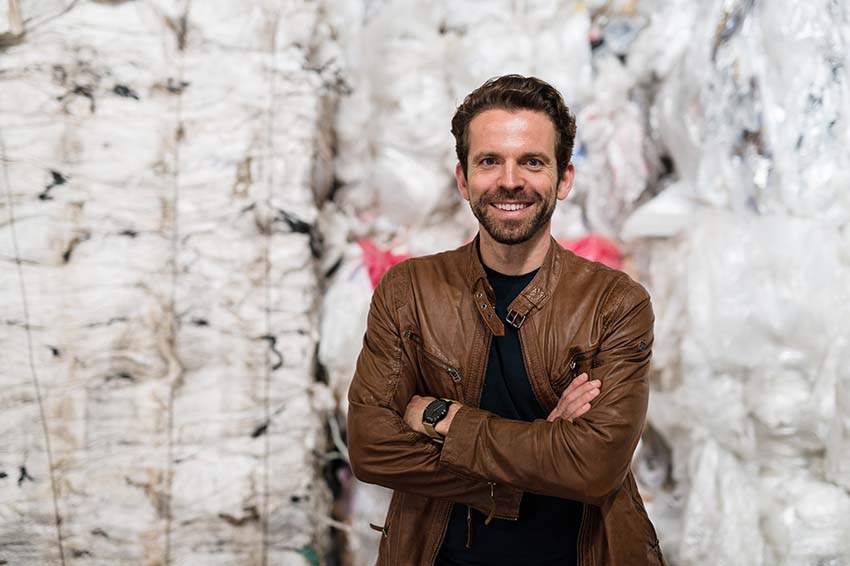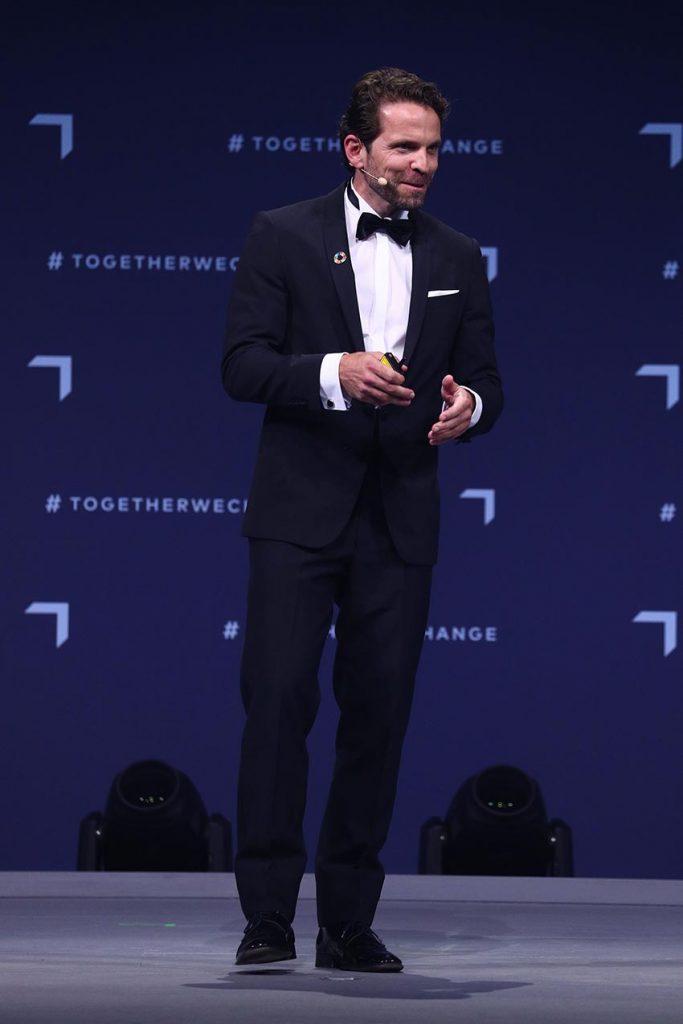Founded in 2018 by Christian Schiller and Volkan Bilic, as an answer to the plastic pollution crisis, cirplus is the world’s first global Al-enabled marketplace for circular plastics.
cirplus software is built for companies in the plastics and recycling value chain to simplify the currently complex and largely offline transactions of plastic waste feedstock, regrind and regranulates.
It does this by connecting waste managers, recyclers, and product manufacturers on the digital procurement platform to enable them to buy and sell recycled plastics in a reliable and cost-effective way. By linking fragmented and untransparent markets, cirplus establishes the crucial digital link to turn plastic waste back into a valuable resource.
The company has also set standards for recycled plastics by creating an new standard DIN SPEC 91446, to lower the transactional costs of recyclates and create transparency in terms of quantity, quality, and price (spot and contract tenders).
By doing all this, they are spearheading the shift to a circular plastic economy.
Interview with Christian Schiller, CEO & Co-Founder of cirplus.
Easy Engineering: What are the main areas of activity of the company?
Christian Schiller: Our mission at cirplus is to build a one-stop shop for finding, negotiating, contracting, shipping, insuring and paying for recyclates and plastic waste trades across the globe. For this reason, these are the main areas of activity for the company.

E.E: What’s the news about new products?
C.S: At cirplus, instead of new products, we have new technologies.
To combat the plastic pollution crisis and ensure plastic recyclates are cost-attractive and a viable option for buyers, we must consistently innovative. Only by intelligently linking the trade flows of waste and recyclate can we succeed in bringing plastic full circle.
E.E: What are the ranges of products?
C.S: Using cirplus’ platform, businesses can purchase recyclates in the most secure, traceable, and cost-efficient way. The options available include a range of plastic waste feedstock, regrind, and regranulates. More specific materials listed are PET, PE-HD, PE-LD, PP, ABS, PS, and much more.
E.E: At what stage is the market where you are currently active?
C.S: The current market for a stable supply of quality-assured plastic recyclates is time-consuming, untransparent, and cumbersome. Virgin plastics are currently cheaper and a more convenient option, as their production is standardized. In comparison, recycled plastics have several issues, including:
- Lack of established standards for vetting quality in fragmented markets;
- Require time consuming lab-based material testing processes;
- Lack transparency on supply quality, quantity and pricing.
At cirplus, we are working on simplifying the currently complex and largely offline transactions of plastic waste feedstock, regrind, and regranulates and creating a solution to the industry’s problems.
We have combined digitalization and standardization to create a procurement platform that brings high-quality recyclates back into the supply chain at a lower transactional cost.
E.E: What can you tell us about market trends?
C.S: cirplus’ customers come from a range of markets and there are various market trends to be aware off.
One particular trend that is visible in the automotive industry, for example, is that vehicles are becoming increasingly more climate friendly. This is not just limited to the drive system, but car manufacturers are wanting to become increasingly greener in the use of their materials.
Recyclates could be a big part of this change. In the distant future, PCR recyclates may be able to celebrate their ‘debut’ in all non-safety-relevant components of the passenger car.
The platform we have created at cirplus can be instrumental in supporting the automotive industry supply of plastic recyclates.

BERLIN, GERMANY – JUNE 22: Cirplus CEO Christian Schiller speaks on stage at the Green Awards during day 1 of the Greentech Festival on June 22, 2022 in Berlin, Germany. The Greentech Festival is the first festival to celebrate green technology and to accelerate the shift to more sustainability. The festival takes place from June 22 to 24. (Photo by Sebastian Reuter/Getty Images for Greentech Festival)
E.E: What are the most innovative products marketed?
C.S: Let me rephrase this question slightly, what is the biggest innovation we have introduced to allow us to bring our business to market? Our world first industry standard.
At cirplus, we led the establishment of DIN SPEC 91446 alongside the German Institute for Standardization (DIN) and 16 distinguished industry players, to resolve the problem that no standard existed for downcycled plastics. In a major breakthrough for the industry, we initiated and developed the world’s first standard for high-quality recycled plastics and created transparency in terms of quantity, quality and price.
DIN SPEC91446 has been available to all market participants since November 2021 and is integrated into cirplus software.
E.E: What estimations do you have for 2022?
C.S: In December 2018, cirplus was just two men’s dream. Fast forward to today, we have hired 15 employees to help run our global platform for circular plastics, and with 100 companies onboard we feel we are moving towards our goal of making plastic waste history.
Our mission is to build a platform for finding, negotiating, contracting, shipping, insuring and paying for recyclates and plastic waste trades across the globe.

